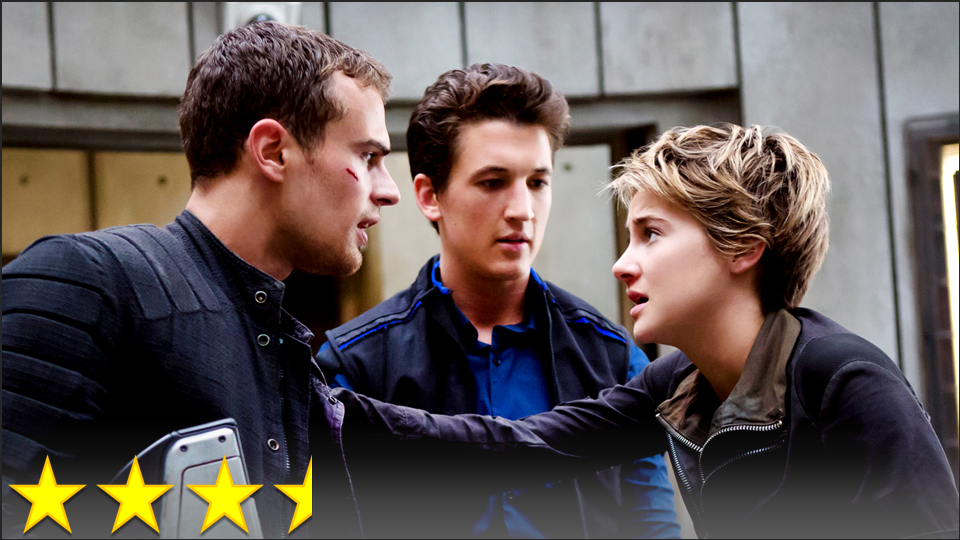SPOILER ALERT
With a bad Italian accent a la The Amanda Show, say it with me: “This is better – much better!”
As we all should know because I’m super important, I have my issues with Divergent. This world and its people are entirely nonsensical, and I had such a hard time taking it all halfway seriously. Fortunately, this film is just the game-changer that the franchise required. Never in a million years could I believe that these “founding fathers” thought it would be wise to separate the people into factions like this. However, I’d totally buy that a bunch of people who’ve been driven to insanity by a terrible war decided to throw a bunch of people in a pen, separate them by their primary skills, and see who gets killed. Furthermore, the experiment shows that Divergents can arise even in a world of just singularly skilled people. The only way they could improve on this to clear up any other logical issues is if they explain that the premise of Divergent was actually just a table top game, but the experimenters got drunk and decided to make a government out of it.
With the structural mess out of the way, I can finally address everything else in this movie. The score and soundtrack are drab as usual, and much of the screenplay is regrettably predictable, but aside from that, it’s a pretty decent flick. Apparently, most critics thought this was a step back for the franchise, and the reviews for this film are much worse than those of the first. I disagree, in part because I just like stories that serve as a bridge from the first story in the franchise to the climax (meaning there’s less exposition and more mystery and hype), but also because the plot simply gets more interesting. One of the best things a story can do to add hype is make sure its characters on the run from a ticking time bomb of sorts, and they have to beat the clock. While the Hunger Games films have an element of this, the games themselves don’t start until at least halfway through the movies, whereas Insurgent (knowing its characters aren’t quite compelling enough to pull off an hour of characters just hanging out, shooting promo videos, impressing sponsors, resting on trains, etc.) puts Tris on the run right from the get-go, and it’s only a matter of time until the powers that be track her down.
This movie also plays around with character dynamics a lot, which adds a touch more dimension to the characters that have been largely flat thus far. Can Four’s mother be trusted, or is he right to suspect her of evil intentions? Is Tris going to be able to keep from revealing that she killed her best friend’s brother? Is Peter a good guy, a bad guy, or still figuring it out? How much can Caleb trust that Jeanine won’t be too inhumane to his sister? Can Four bring himself to shoot Eric? And what do the founding fathers have to tell the people of the future? Regardless of how predictable many parts of this movie may be, the lives of these characters get wonderfully messier, and things do take bigger and better turns and twists that make sure the audience is having a heck of a time.





